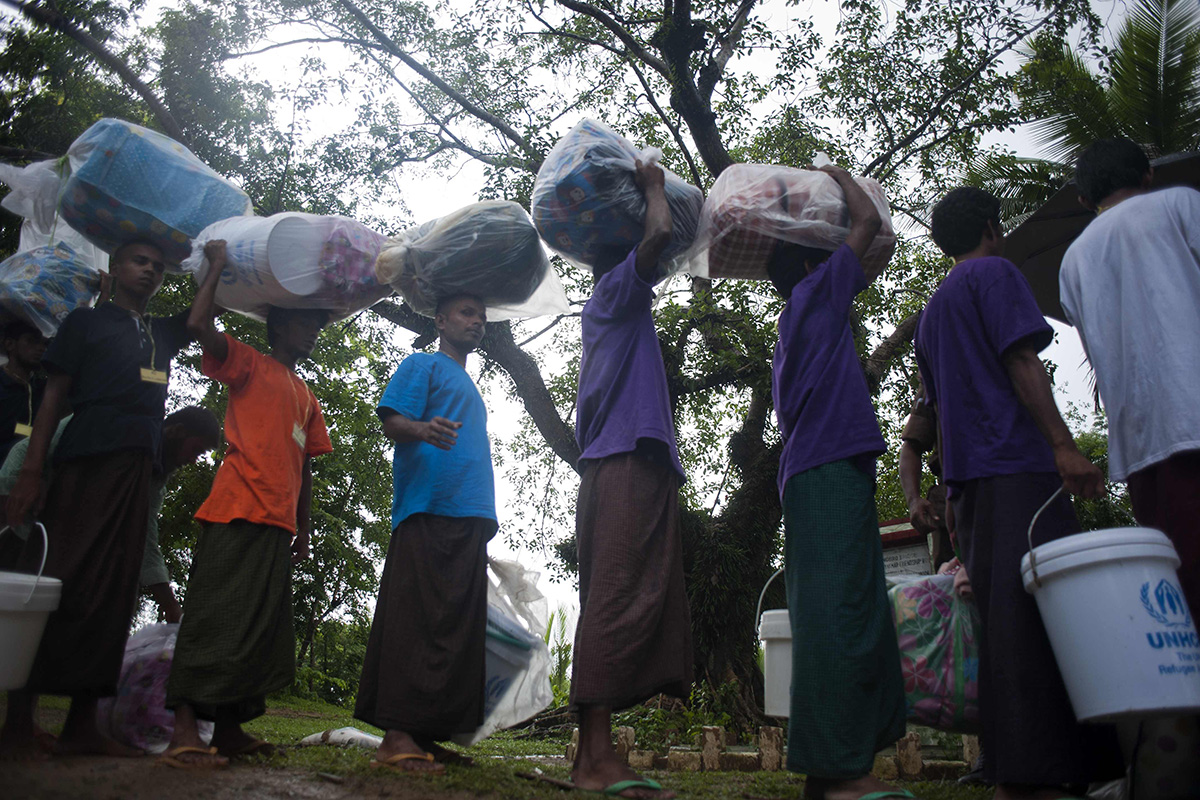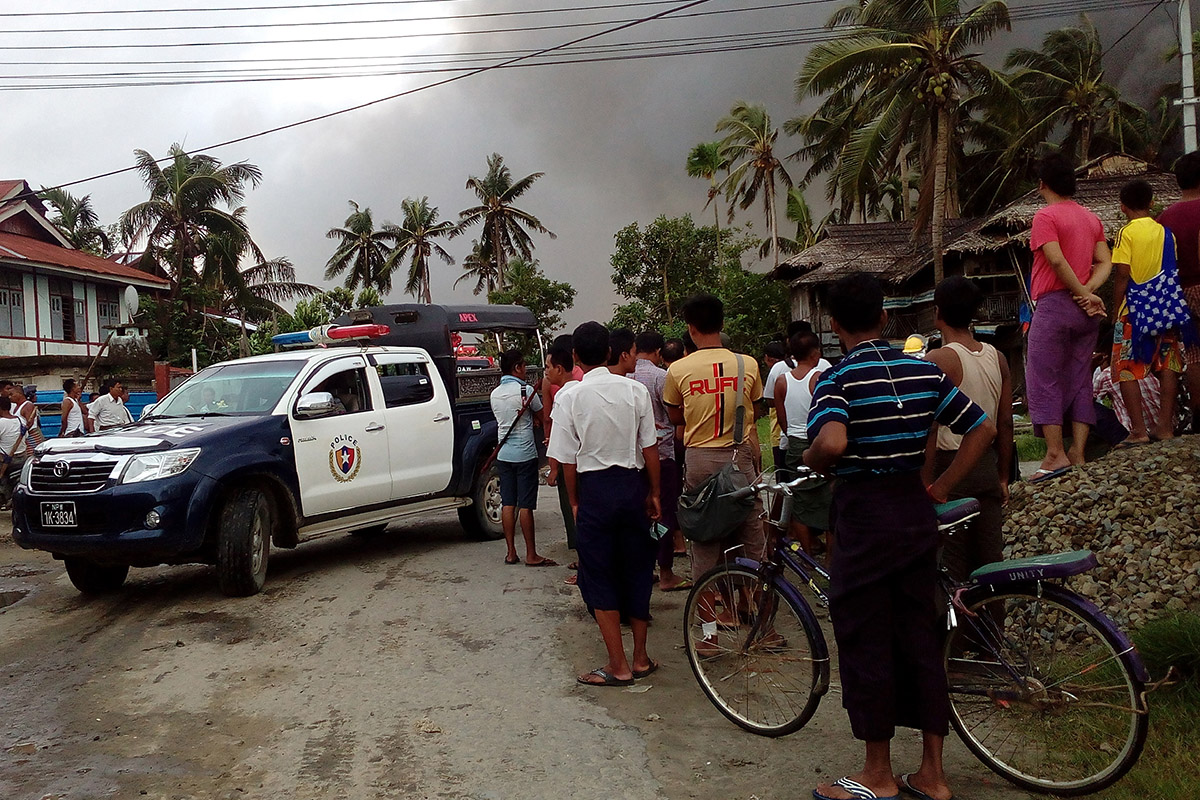Religious persecution against the Muslim minority Rohingya in Myanmar has been an ongoing crisis that has thrown the country into international limelight for all the wrong reasons. Naypyidaw’s mismanagement of the crisis has not only caused people to blame the state’s de-facto leader and Nobel Peace Prize laureate, Aung San Suu Kyi, but it has also called into question ASEAN’s relative taciturnity towards the predicament suffered by thousands in Rakhine State.
ASEAN’s lack of a united response towards the atrocities in its northern fringes, is grounded on its adherence to the principle of “non-interference”. Enshrined within the ASEAN charter, it advocates that states eschew from interfering in the affairs of other countries. It is integral to the “ASEAN Way” of conduct which draws either criticism or praise depending on who one talks to. However, the association has been quite flummoxing in its observance of this principle. Throughout its history, ASEAN member states have, to varying degrees, participated in the affairs of another state to the extent of what some might consider to be “interfering”.
According to Senior Lecturer in International Politics at Queen Mary University of London, Dr Lee Jones in his 2010 article published in The Pacific Review, noted that the practice of non-interference by Southeast Asian states has been interpreted for use in two ways.
During the Cold War era, the red scare emanating from the Indochina region (Vietnam, Cambodia, Lao and Myanmar) forced neighbouring founding states of ASEAN (Malaysia, Singapore, Thailand, Indonesia and the Philippines) to practice “non-interference” on the basis of wanting to stabilise their domestic capitalist social orders from socialist influences. It also helped ensure their respective internal communists uprisings could be quelled.
Hence, it justified actions such as the ones by Thailand to sponsor anti-communist Burmese regimes and deploy its troops in Lao to quash similar rebellions there. Malaysia provided military and civil assistance to troops fighting for South Vietnam. The Philippines also sent troops to fight against communists during the Vietnam War and Indonesia infamously annexed East Timor via a military intervention to halt the plausible establishment of a communist influence there.
After the Berlin Wall fell, Southeast Asian governments were faced with a rising middle class that demanded Western forms of liberal democracy as compared to the illiberal forms of democracy that they practised. Hence, there was a need for these states to insulate from external and internal threats to the prevailing illiberal order. Now, the principle was used in its more literal sense, understood today as governments refraining from telling other states what they should or should not do. This was typified when in 1994, a convention to discuss Indonesia’s annexation of East Timor was scheduled to take place in the Philippines. An enraged Jakarta cancelled US$ 700 million worth of joint venture deals with Manila and threatened to halt mediation between the Philippine government and Muslim rebel forces which forced the eventual cancellation of the conference.

In this picture taken on June 8, 2015, migrants who were found at sea on a boat stood in line as they are repatriated across the Myanmar-Bangladesh border in the sub-township of Taung Pyo, Maungdaw, in the Myanmar state of Rakhine. (AFP Photo/Ye Aung Thu)
Such is the practice that has been carried to this day and now exercised vis-à-vis with the Rohingya crisis. While international observers including the United Nations (UN) have condemned the devastating abuse, ASEAN has generally remained mum. Indonesia and Malaysia, with large Muslim populations have, voiced their concerns.
The most vociferous statement came from the Malaysian Prime Minister who called the crisis a genocide, but was condemned himself for using the crisis to score political points with Malay voters at home. Both states, and Thailand, have turned back boats, crammed with refugees, to avoid any mass migration of the Rohingya to their shores and many who do make it to refugee centres themselves, live in squalor conditions and are at risk of being roped into human trafficking syndicates.
Former Secretary General of the UN, Kofi Annan led an Advisory Commission, mandated by Myanmar to provide recommendations and develop solutions concerning the issue in Rakhine State. The commission’s final report, released last Thursday barely mentioned ASEAN, but where it did, it recommended that Naypyidaw “allow for full and frank discussion of the topic in regional fora”. Given the status quo, that can only materialise if Suu Kyi’s government agrees to do so. Until then, ASEAN should weigh its strict abidance to its principle of non-interference, against the plight of the Rohingya and summon the moral capital to answer if it is really doing the right thing.
